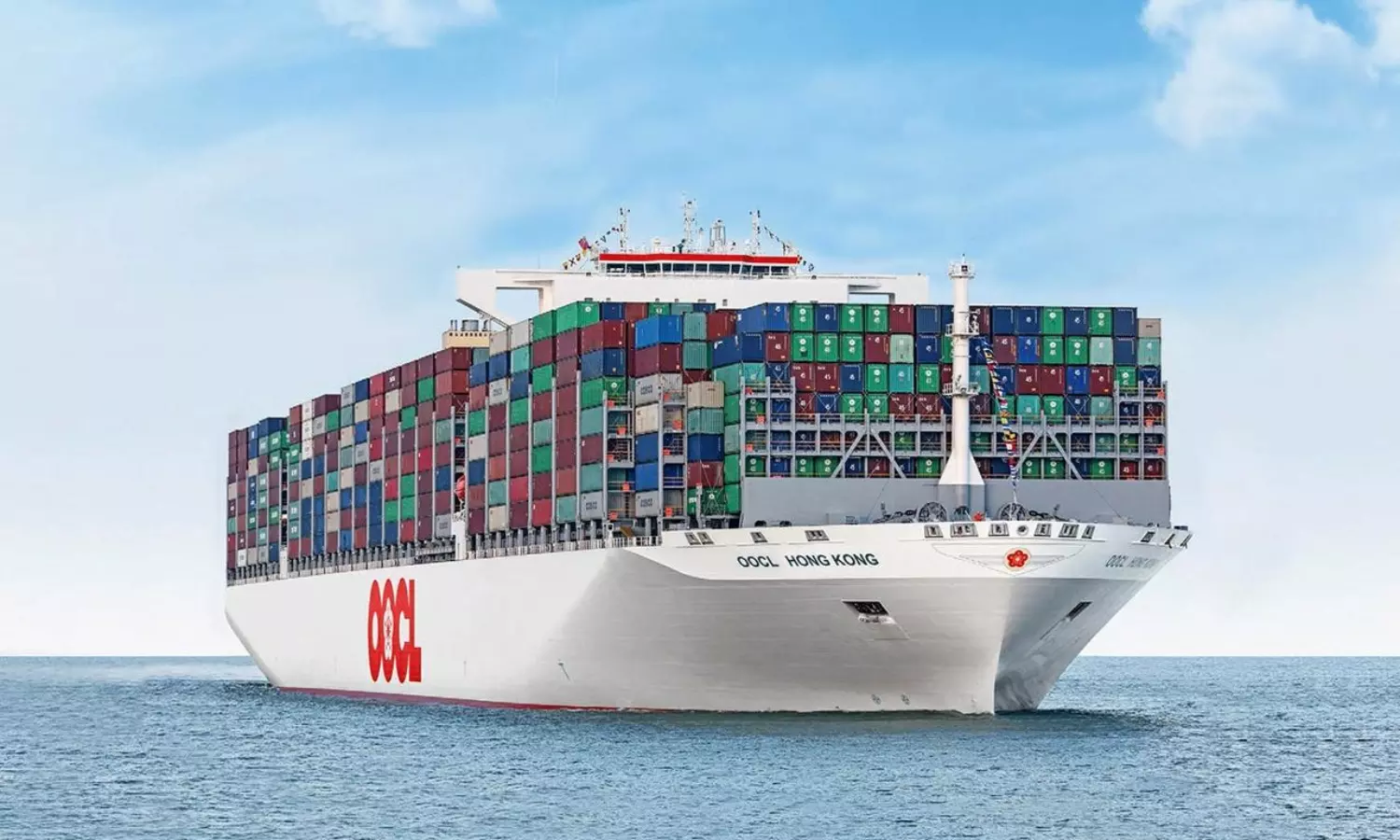OOCL reports $7.4bn operating profit in 2021
Company has ordered 10 new 16,000 TEU vessels for delivery in 2024 and 2025.

Hong Kong-listed Orient Overseas (International) Limited, the parent company of Orient Overseas Container Line (OOCL), reported more than doubling of revenue to $16.8 billion in 2021.
Group EBIT was $7.4 billion, EBITDA was $7.9 billion, operating cash flow was nearly $9 billion, and profit attributable to shareholders was $7.1 billion, an official statement said.
The board has recommended a dividend for 2021 of approximately $5 billion, the statement added.
Container transport and logistics business (OOCL) reported EBIT of $7.4 billion. While liftings increased marginally to 7.6 million TEU, the company has ordered 10 new 16,000 TEU vessels for delivery in 2024 and 2025.
"Since the middle of 2020, our industry, indeed the entire supply chain, has been battling the same confluence of factors. After global economies began to reopen after lockdowns driven by the pandemic, levels of demand consistently outperformed expectations, especially, but not only, on routes from Asia to North America. At the same time, despite full deployment of capacity, with more capacity than ever before being utilised on the routes with the highest demand, effective levels of supply have rarely managed to keep pace with that strong demand. The reason for this is well known: a long list of causes of disruption have brought severe congestion to many of the key hubs of container shipping, slowing down the round trips made by each vessel, and, in effect, reducing the capacity available to transport our customers' cargo."
In terms of outlook, purely in terms of the container shipping market, the market situation remains very similar to what we saw during 2021, the group said in its announcement. "Demand still appears to be resilient, and continuing congestion and disruption around the world mean that there is considerable pressure on available space and consequently high demand for our services. It seems unlikely that this situation will change materially during the first half of 2022 but we will continue to pay close attention to key leading indicators and to the forecasts and expectations of our customers."


